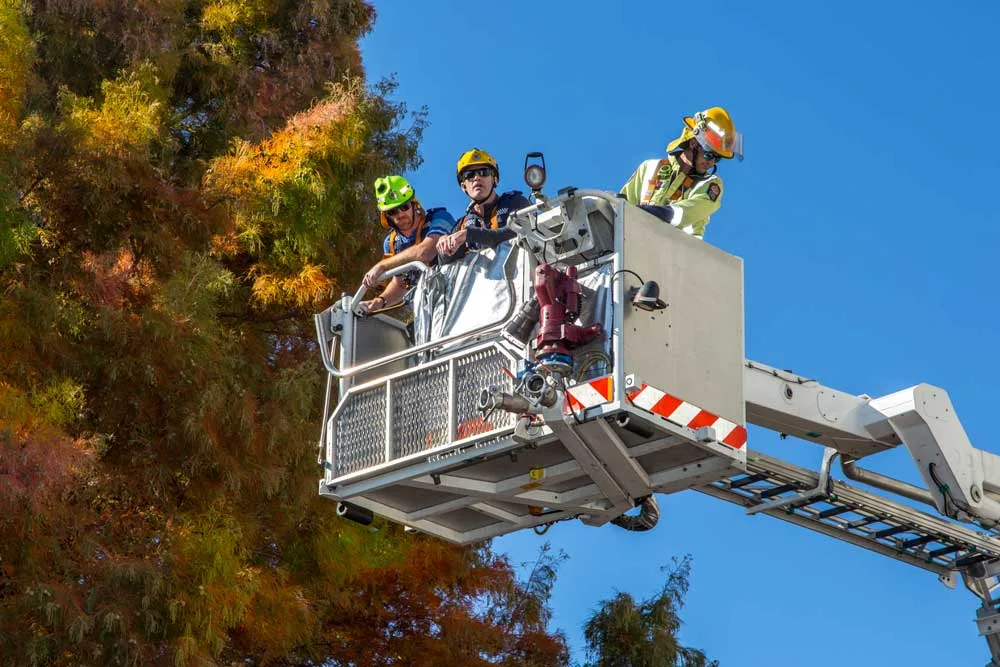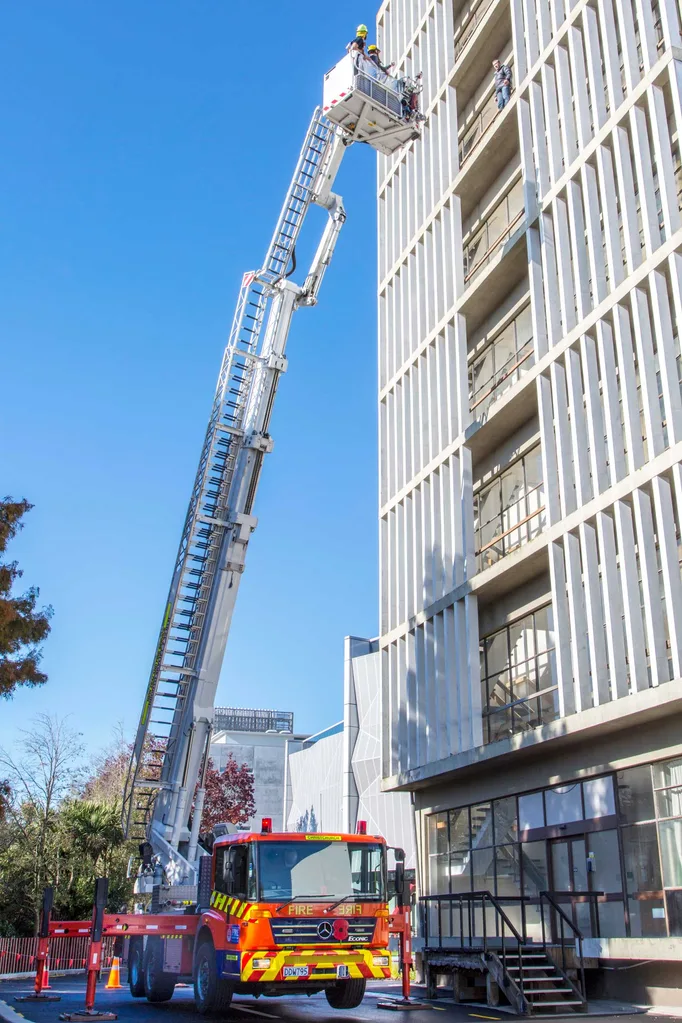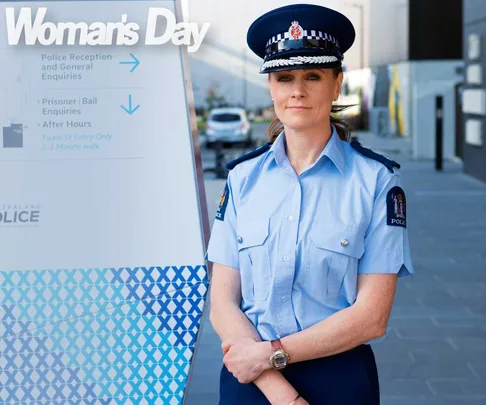It was a bleak, bitterly cold Christchurch night as Leairne Dow made her way to the top of a city parking building.
Over the next highly charged four hours, the veteran cop would use every skill she had learned over more than a decade as a negotiator to persuade a woman threatening suicide that
her life meant something.
“It was very emotional for the whole team,” recalls Leairne. “The woman still has some issues she is dealing with, but she’s developed into a strong lady, is working and things are looking up for her.”
Leairne – an Inspector – runs the national Police Negotiating Team and heads the fifteen-person Canterbury unit, a team that in one week recently was called to four suicide attempts.
Members are specially trained to help resolve high-risk situations – armed offender standoffs, kidnappings, the March 15 Christchurch mosque attacks, and increasingly attempted suicides and serious self-harm incidents. They are all volunteers, doing their negotiating work on top of their normal day-to-day duties. This includes conflict resolution, de-escalation, planning for and managing difficult conversations and involvement in protest activity.

Leairne recently completed the FBI negotiation course at the Marine Corps Base in Virginia. She’s the first to admit the life and death encounters take a toll on everybody, but knowing the end result can be a life saved is what motivates her team.
“These situations are stressful for everybody. For them [the person threatening to take their life], they see it as being the only way out – they can’t see any other way of dealing with whatever has brought them to that point.
“You get an enormous amount of pleasure when you’ve been involved in an incident where the person is really emotional, they don’t know what they’re doing, they don’t know where life has gone wrong … and you get them to put down a knife or move away from an edge.”
The negotiator’s goal is to influence a change of behaviour, to quell the desperation and turmoil, build trust and get the person to a safe place. In such intense situations, it is inevitable the person the negotiator is talking to will share some personal stories. The negotiator considers this a privilege, and always treats the person with dignity and respect in whatever situation arises.

Four members of the team attend each incident. The primary negotiator, who does most of the communicating, is supported by a secondary negotiator, a team leader and a support person. And despite what many people think, it’s not all about talking – there is a lot of what’s called “active listening”, in the hope of finding a hook that resonates with the distressed person.
“Empathy is a big part of what we do,” explains Leairne.
“To develop a rapport, we have to put ourselves in the shoes of the people we are talking to. Much of that is about listening, about identifying the little give-aways that people drop into conversations.
“We’ll try and help them think rationally about their situation, let them know there is hope, that there are things, people, events out there for them in the future. We want to help them to be safe and feel safe.”
Leairne’s toughest case was that of a suicidal woman whose young baby had died suddenly. “She was finding it really tough to deal with and had limited support around her,” she says.
“She didn’t know what else to do. She blamed herself for not watching the child – a natural response in a situation like that.”

Sergeant Richard Carolan has been part of the Canterbury Police Negotiation Team for almost as long as his boss. He emphasises the close ties they have with other first responders and mental health services.
“We don’t just walk away from these situations,” he says. “You’ll often find one of our team will be at the hospital with the person for quite some time after an incident. If someone’s standing on the side of a building and you talk them off, you’ve created a bond. We would shatter that bond if we just dumped them at the door and drove off.”
Richard talks of the “thinking on your feet, split second” nature of the job, the 20-minute chats that seem like forever, and the increased number of cries for help following the Canterbury earthquakes and the mosque attacks.
“There’s a lot of stress in the community. Situations that don’t end well, they’re the real tragedies. We could always have more police, we could always have more ambulance staff, we could have more mental health professionals – we deal with the here and now, do it well, and have a great team.”
He stresses, however, that the Christchurch team “very rarely have a negative result”.
Adds Leairne, “We have all the time in the world. Often these people haven’t had the opportunity to have someone simply listen to them, without judgement. That’s what we’re there to do, to bring them out of that crisis situation; to save their lives.”
Suicide: The Facts
✦ A total of 4369 attempted/threatened suicide events in Canterbury were reported in 2018 – up 59% from 2015.
✦ Nationally, police attended 23,423 events – up 43% from 2015.
✦ In the Canterbury region, 87 people died by suicide in the 2017/18 year, up from 79 the previous year.
✦ Canterbury’s suicide rate was 15.46 deaths per 100,000 people – higher than the national average of 13.67.
Where to get help
Need to talk? Free call or text 1737 any time for support from a trained counsellor.
Lifeline: 0800 543 354
Youthline: 0800 376 633, free text 234
Samaritans: 0800 726 666
Suicide Crisis Helpline: 0508 828 865 (0508 TAUTOKO)
Depression Helpline: 0800 111 757 or free text 4202



